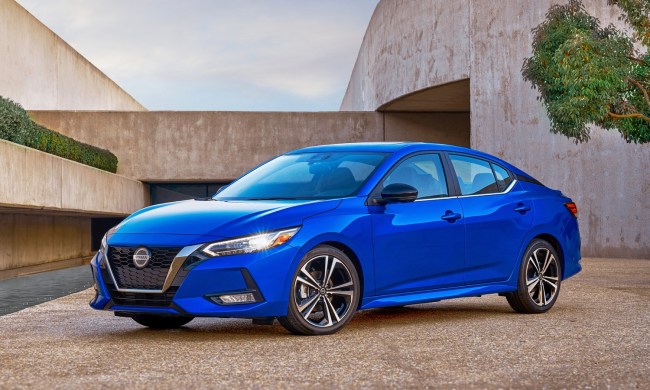Hyundai pulled the cover off the 2020 Ioniq Electric in Los Angeles today to reveal a whole host of upgrades over the previous model. The revised electric vehicle extends its range estimate from 124 miles to 170 miles with the addition of an upgraded 38.3-kilowatt-hour (kWh) battery. The new battery pack also includes 36% more energy capacity than the 2019 Ioniq’s 28 kWh.
The Ioniq’s available horsepower increases from 118 to a healthy 134, while the Environmental Protection Agency (EPA)-estimated 133 combined MPGe makes the 2020 Ioniq Electric one of the most efficient vehicles sold in America. The Ioniq goes head to head with the Nissan Leaf, and these improvements are meant to prevent the Nissan from running away with the affordable EV market.

Charging improves from 6.6kw to 7.2kw, so that larger battery should not equate to longer charging time for the Hyundai. And 100kw fast charging lets you charge from 0% to 80% in just 54 minutes at a commercial charging station.
All 2020 Ioniq models received a face-lift, with refreshed exterior and interior designs, additional infotainment technology, and new active safety and driving-assistance features. The interior includes a 10.25-inch navigation screen, new center LCD information screen, and touchscreen HVAC controls. Fully customizable ambient lighting lets your interior always match how you are feeling, or sets the mood for you and a special someone. The entire 2020 Ioniq line, including the Hybrid, Plug-in, and Electric models, are available to order now.
Vision T Crossover Concept
Giving showgoers a peek into future crossover plans, Hyundai also gave a glimpse at a new concept called the Vision T. This is the seventh in a whole series of Hyundai Design Center concepts expressing Hyundai’s evolving global design language, which the company calls “Sensuous Sportiness.” Key design features include hidden headlights and active grille shutters to increase aerodynamic efficiency.

The crossover SUV concept has a matte-green exterior finish with severe creases all over the body structure that lends the car an aggressive, modern look. Surprisingly, the concept is powered by a plug-in hybrid powertrain rather than an electric motor. It is notable that Hyundai, which already sells the fully electric Kona SUV, would debut a hybrid concept.


